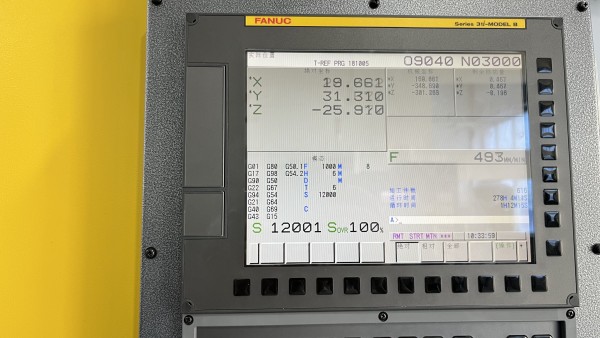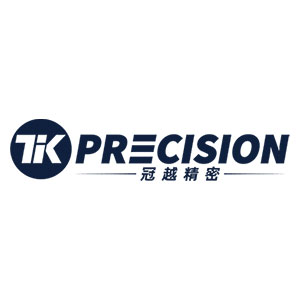Increased Production Speed with CNC Turning
In the realm of manufacturing, productivity is the cornerstone upon which businesses build their competitive edge. CNC turning services have emerged as a pivotal technology, revolutionizing the way components are produced. The advantages of CNC turning in terms of productivity are manifold, and they have a profound impact on the speed of production, which is a critical factor in meeting the demands of today’s fast-paced market.
CNC, or Computer Numerical Control, turning is a process where computer-controlled machines shape material into precise components. Unlike manual turning, which requires a skilled operator to control the lathe and cutting tools, CNC turning automates the process, ensuring high precision and consistency. This automation is the first key to unlocking increased production speed. With CNC machines, the need for constant human intervention is greatly reduced, allowing for continuous operation with minimal downtime. This means that production can carry on uninterrupted, often 24/7, with the machines only stopping for maintenance or tool changes.

Moreover, the precision of CNC turning machines is unparalleled. The computerized control allows for exact movements and cuts, which translates to reduced errors and less waste. This precision ensures that each part is produced to the exact specifications without the variability that can come with human operation. As a result, the time spent on quality control and reworking defective parts is significantly decreased, further enhancing the speed of production.
Another advantage of CNC turning services is the quick setup time for new projects. Once a design is programmed into the CNC machine, it can be saved and recalled for future use. This means that transitioning from one production run to another can be done swiftly and efficiently, without the lengthy setup times that manual machines might require. For businesses that need to switch between different product lines or customize parts on the fly, this flexibility is invaluable and contributes to a faster production cycle.
CNC turning also excels in its ability to handle complex shapes and designs. Traditional manual turning can be limited by the operator’s skill
Consistency and Reproducibility in Manufacturing
In the realm of manufacturing, the quest for efficiency and productivity is unending. Companies are constantly on the lookout for methods that can churn out products not only faster but with unwavering quality. CNC turning services have emerged as a cornerstone in this pursuit, offering a level of consistency and reproducibility that traditional machining methods struggle to match.
CNC, or Computer Numerical Control, turning is a manufacturing process in which computer-controlled machines shape material into precise, intricate components. The advantages of this technology are manifold, particularly when it comes to enhancing productivity in manufacturing operations. One of the most significant benefits is the ability to maintain consistent quality across high volumes of parts. Unlike manual turning, which relies on the skill and consistency of an operator, CNC turning is programmed to follow exact specifications with minimal deviation. This ensures that every part produced is virtually identical to the last, eliminating the variability that can lead to waste and rework.
Moreover, the precision of CNC turning machines means that they can produce complex shapes and features that would be difficult, if not impossible, to replicate manually. This capability allows manufacturers to take on a wider range of projects and to do so with confidence that the end product will meet stringent quality standards. As a result, businesses can expand their offerings and attract new customers without compromising on the quality of their work.
Another key advantage of CNC turning services is the speed at which they operate. Once a design is programmed into the CNC machine, it can execute the necessary operations much faster than a human operator. This increased speed translates directly into higher output rates, enabling manufacturers to complete orders more quickly and to respond more agilely to changes in demand. In industries where time-to-market is critical, the ability to accelerate production without sacrificing quality can be a significant competitive edge.
Furthermore, CNC turning machines are capable of running for extended periods without human intervention. This means that they can continue producing parts outside of regular working hours, effectively
Reduced Labor Costs and Human Error
In the realm of manufacturing, productivity is the cornerstone of success. As industries strive for efficiency, CNC turning services have emerged as a pivotal technology, revolutionizing the way components are produced. The advantages of CNC turning are numerous, particularly when it comes to reducing labor costs and human error, which are two significant factors that can impede productivity.
CNC, or Computer Numerical Control, turning is a manufacturing process in which computer-controlled machines shape material into precise components. This automation is one of the primary reasons for the reduction in labor costs. Unlike traditional manual lathes, which require constant supervision and hands-on operation by skilled machinists, CNC lathes can run unattended for extended periods. This means that a single operator can oversee multiple machines at once, effectively multiplying their productivity without the need for a proportional increase in labor. Consequently, manufacturers can allocate their human resources more strategically, focusing on tasks that require critical thinking and problem-solving skills, rather than repetitive manual labor.
Moreover, the precision of CNC turning services significantly diminishes the likelihood of human error. In manual machining, even the most skilled machinist is susceptible to mistakes due to fatigue, distraction, or simple miscalculations. These errors can lead to defective parts, wasted materials, and the need for rework, all of which are costly in terms of both time and resources. In contrast, once a CNC machine is programmed and set up correctly, it follows the specified instructions with unwavering accuracy, producing parts that are consistent and meet exact specifications. This reliability is crucial for industries where precision is paramount, such as aerospace and medical device manufacturing.
The reduction of human error also extends to the setup process. Advanced CNC machines come equipped with features like tool recognition and preset parameters, which streamline the setup and reduce the potential for input mistakes. This not only accelerates the production process but also enhances the overall quality of the output. As a result
Enhanced Material Utilization and Waste Reduction
In the realm of manufacturing, productivity is the cornerstone upon which businesses build their competitive edge. CNC turning services have emerged as a pivotal factor in enhancing productivity, particularly through the lens of material utilization and waste reduction. The integration of CNC turning into production processes has revolutionized the way industries approach the creation of parts and components, offering a multitude of benefits that translate into tangible gains for businesses.
One of the most significant advantages of CNC turning is its precision. The computer-controlled nature of CNC machines allows for extremely accurate movements and cuts, which means that each piece produced is consistent with the next. This level of accuracy not only ensures that parts meet strict specifications but also maximizes the use of materials. By programming the machine to optimize cutting paths, manufacturers can extract the most value from their raw materials, reducing the amount of scrap produced. Consequently, this efficient use of materials leads to cost savings and a reduction in the need for additional resources, which is not only beneficial for the bottom line but also for the environment.
Moreover, CNC turning services facilitate the production of complex shapes and designs that would be difficult, if not impossible, to achieve with manual machining. This capability allows for the consolidation of multiple parts into single, more complex components, which further enhances material utilization. By reducing the number of parts required in an assembly, there is a decrease in the overall material needed, and thus, less waste is generated. Additionally, this simplification of assemblies can lead to improvements in product performance and reliability, as there are fewer potential points of failure.
Another aspect where CNC turning services shine is in their ability to operate continuously without significant downtime. Unlike manual machining, which requires breaks for operators, CNC machines can run for extended periods unattended, especially when equipped with automatic loading and unloading systems. This continuous operation means that production can keep pace with demand without the need for additional machines or space. The result is a leaner manufacturing process that makes better
Media Contact
Company Name: Tik Precision Manufacturing Co.,Limited
Email: Send Email
City: Kowloon
Country: HongKong
Website: www.tikprecision.com

